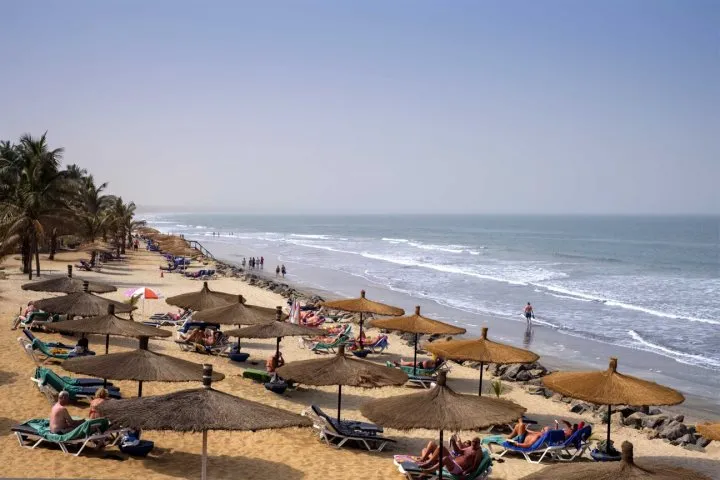The Impact of Tourism on Real Estate Development in The Gambia

Tourism is a central pillar in the economic development of many nations, with The Gambia being no exception. The Gambia is celebrated for its rich culture, diverse ecosystems, and warm hospitality, drawing in a myriad of tourists each year. This influx of visitors has substantial implications for the country’s real estate sector, which has been experiencing considerable evolution and growth.
The Essence of Tourism in The Gambia
Tourism in The Gambia is recognized as a significant driver of economic growth and development[1][3]. The industry provides employment opportunities for thousands and enhances the nation’s international profile. The diversity in tourism offers, ranging from the exploration of historical sites to ecotourism, has ensured a steady stream of visitors.

Tourism-Driven Demand for Real Estate
With increasing tourist arrivals, the demand for diverse accommodation options, including hotels, resorts, and rental apartments, has soared. This demand has spurred significant investments and developments in the real estate sector, creating an array of lodging options catering to different preferences and budget ranges.
The push for higher-quality and diverse accommodations has led to the rise of real estate developments focusing on luxury and comfort, with state-of-the-art facilities and amenities. This trend is not confined to commercial properties; residential real estate has also been influenced, with more people seeking high-quality living spaces, driven by the rise in tourism-related employment and the influx of expatriates and investors.
Role of Government and Policy Development
The government has played a pivotal role in fostering both the tourism and real estate sectors in The Gambia[3]. Through the establishment of conducive policies, the government has incentivized investments in the tourism and real estate sectors, enabling infrastructural developments and the enhancement of service quality within the tourism industry.
Policy developments and initiatives aimed at boosting tourism have inherently supported the growth of the real estate sector. By emphasizing sustainable tourism development, the government ensures that real estate developments are aligned with environmental conservation efforts, maintaining the natural allure of the country for future tourists.
Ecotourism and Sustainable Development
Ecotourism has emerged as a significant trend in The Gambia, impacting real estate development trends and principles[5]. Developments are increasingly focusing on sustainability, integrating eco-friendly designs, and utilizing green technologies. This shift not only preserves the country’s natural beauty but also caters to the growing market of eco-conscious travellers.
The emphasis on ecotourism promotes community involvement in tourism and real estate developments, ensuring that local communities benefit from economic gains while preserving their cultural heritage and the environment.
Impact on Property Values and Investment Opportunities
The flourishing tourism sector has led to increased property values, especially in areas with high tourist traffic. This increase in property values presents lucrative investment opportunities in real estate, attracting both local and international investors seeking to capitalize on the booming market.
The rise in property values has, however, raised concerns about affordability for locals, creating a need for a balanced approach to real estate development that ensures equitable access to housing and property ownership for the local population.
Challenges and the Way Forward
While tourism has driven substantial growth in The Gambia’s real estate sector, it also presents several challenges. The focus on luxury and high-end developments catering to tourists may sideline the housing needs of the local population, leading to disparities in housing availability and affordability.
Balancing the needs of tourists with those of the local population is crucial. Policies and strategies should aim at inclusive and sustainable development, ensuring that the benefits of tourism-driven real estate growth are equitably distributed, and the cultural and natural heritage of The Gambia is preserved for future generations.
In conclusion, the symbiotic relationship between tourism and real estate in The Gambia is evident. The growth and development in tourism have spurred innovations and investments in the real estate sector, diversifying the property market and elevating service and accommodation standards. While this relationship presents immense opportunities, thoughtful and inclusive policies are paramount to navigate the challenges and ensure sustainable and equitable development in both sectors.
🌐 Sources
- trade.gov – Gambia, The – Travel and Tourism
- researchgate.net – Tourism and development policy in the Gambia
- unctad.org – Value Chain Analysis: The Tourism Service Sector of Gambia
- stax.strath.ac.uk – the development of tourism in kenya and the gambia
- smcm.edu – Ecotourism in The Gambia
- researchgate.net – Tourism in the Gambia: some issues in development policy
- theseus.fi – Starting a Tourism Company in The Gambia
- landportal.org – Gambia – Context and Land Governance
- yep.gm – Youth and Trade Roadmap for the tourism sector
- medium.com – Tourism Business in The Gambia






